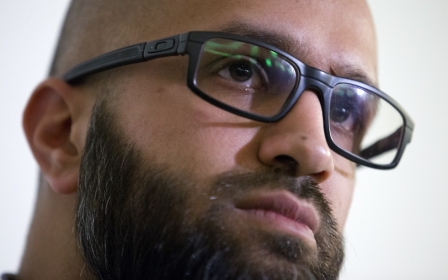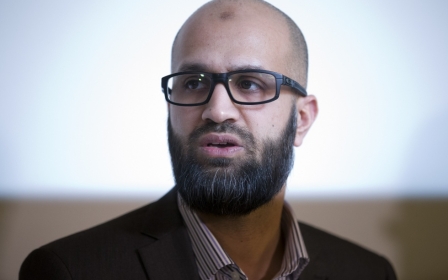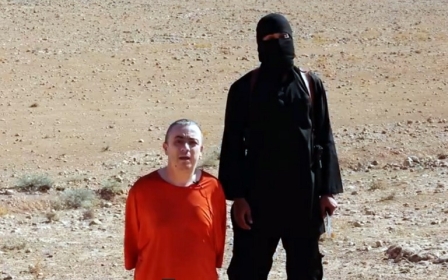Authorities were watching Australian IS 'suicide bomber'

By Martin PARRY
An Australian teenager who militants claimed carried out a suicide attack in Iraq was under surveillance and his passport had been cancelled, officials said Thursday, as reports emerged that he left bomb-making material at his home before fleeing.
A photo posted online, purportedly from a propaganda video by the Islamic State group, shows a white car alongside an inset image of a young man who appears to be Melbourne teen Jake Bilardi sitting in a driver's seat.
It apparently shows the pale, long-haired 18-year-old, also known as Abu Abdullah al-Australi, before he attacks an Iraqi army unit in western Iraq, although the claims cannot be independently verified.
"I can confirm that the Australian government is currently seeking to independently verify reports that 18-year-old Melbourne teenager Jake Bilardi has been killed in a suicide bombing attack in the Middle East," said Foreign Minister Julie Bishop.
"If these reports are confirmed, this is another tragic example of a young Australian being lured to a senseless and violent death by a brutal terrorist organisation that is intent on imposing suffering and misery, not only in Iraq and Syria, but beyond."
At least 10 people were killed and 30 wounded in coordinated attacks on government-held areas of the Iraqi city of Ramadi on Wednesday, involving seven almost simultaneous suicide car bombs.
Earlier this week, Fairfax Media identified a picture circulating online of a Westerner shown holding a rifle alongside Islamic State fighters as Bilardi. He had initially been dubbed "Britain's white jihadi" by London media.
Members of two mosques in Melbourne and friends of the teenager confirmed his identity, saying he converted to Islam after his mother died of cancer and he became confused and angry.
The Australian Broadcasting Corporation reported that Bilardi left materials for improvised explosive devices at his family home in Melbourne before going to Syria.
It said his family found them and alerted authorities, who began attempting to track his movements in the Middle East.
A lengthy blog post online, attributed to Abu Abdullah al-Australi, appeared to confirm his intentions.
"Fearing possible attempts by the increasingly intrusive authorities in Australia to prevent my departure I began drawing up a Plan B," it said.
"This plan involved launching a string of bombings across Melbourne, targeting foreign consulates and political/military targets."
Chasing death
Bishop said she "was not in a position to discuss this specific issue", adding that she was awaiting a briefing from security and law enforcement agencies.
But she confirmed that Australia "had reason to have Mr Bilardi under surveillance for quite some time" and cancelled his passport in October after he left for the Middle East in August.
"However, when he started in Iraq and Syria, with ISIL, it's very difficult for us to keep track of him," she said, using another name for IS.
Australia raised its terror threat level in September on growing concern about militants returning from fighting in Iraq and Syria and those being radicalised at home.
The BBC said Bilardi spoke to one of its reporters in December from Iraq, and told him he wanted to become a martyr.
"I came here chasing death, I might as well kill as many kuffar (infidels) as I can," the broadcaster cited him as saying.
Prime Minister Tony Abbott said the developments highlighted the lure of the Islamic State organisation.
"This is a horrific situation, an absolutely horrific situation," he told reporters.
"And it shows the lure, the lure of this death cult to impressionable youngsters and it's very, very important that we do everything we can to try to safeguard our young people against the lure of this shocking, alien and extreme ideology."
Last week two teenage brothers were stopped at Sydney airport believed to be heading to the Middle East to fight, amid growing concern in Western countries over young people joining mili groups.
Bishop said 90 Australians were currently in Iraq and Syria supporting Islamic State. At least 20 others have been killed.
New MEE newsletter: Jerusalem Dispatch
Sign up to get the latest insights and analysis on Israel-Palestine, alongside Turkey Unpacked and other MEE newsletters
Middle East Eye delivers independent and unrivalled coverage and analysis of the Middle East, North Africa and beyond. To learn more about republishing this content and the associated fees, please fill out this form. More about MEE can be found here.




